- Home
- Brian Hodge
Whom the Gods Would Destroy
Whom the Gods Would Destroy Read online
First Edition
Whom the Gods Would Destroy
© 2013 by Brian Hodge
All Rights Reserved.
A DarkFuse Release
www.darkfuse.com
Twitter: @darkfuse
Facebook: www.facebook.com/darkfuse
Newsletter: http://eepurl.com/jOH5
This book is a work of fiction. Names, characters, places and incidents are either a product of the author’s imagination or are used fictitiously. Any resemblance to actual events, locales or persons, living or dead, is entirely coincidental.
Once more, to Doli…
the best of all worlds.
It can tell you a lot about a person, what they cite as their earliest memory. Big moments, small moments, good things and bad.
For one of my professors, it was the assassination of Martin Luther King, Jr., and how his mother spent the night crying. For the only girl I ever took to a school dance, it was of her grandfather bracing a pair of huge, gentle hands over her shoulders as, on her unsteady toddler’s legs, she navigated around a coffee table whose corners must have looked a little too pointy to him.
I especially like that one. There was a time when I pretended it was my own. For a few minutes here and there, the past was perfect. I could pretend I had a grandfather. I could pretend there was somebody back then who was interested enough to watch out for me, down to the smallest detail. And I could make him look any way I wanted. Sometimes he was kindly and wise and studious, the sort of old man whose idea of a good day was one spent in his own library. Other times he was a restless adventurer, an Indiana Jones type whose only complaint was the mileage, not the years. He could be whatever I needed him to be. Both of them were diligent about taking me out to look at the stars.
Remember, though—it was a high school student pretending this.
Not only was none of it true, it didn’t even have the potential to be true. To be honest, I even would’ve taken the assassination memory if I’d had a choice.
But we get what we get, and, as first memories go, so did I.
I’ve spent most of my life to this point—not a great span of time, I admit—with people telling me that such a thing couldn’t possibly have happened. They’d tell me I had to be making it up. Not on purpose, but that I just got confused. That I’d seen something on TV, and this got mixed with imagery from a movie, then adhered to a leftover wisp from a bad dream, further manipulated by some silly thing I’d overheard and taken literally, and all of them got wrapped around some harmless incident that was at the core of it but was by itself totally completely entirely innocent. And there you have it, False Memories 101.
Sure, if it makes them feel better.
Everybody wants to believe the best about mothers.
I don’t show them the scar, let alone ask them to come up with a better explanation for how it got there.
The way I remember it, I would have been four years old, maybe three. That’s the age most people I’ve asked can pinpoint for their first memory. It sounds right.
What I have are fragments. There are the unambiguous bits and pieces that I can recall, some as clear as high-def footage, and in between are the speculations that make the most sense, like connective tissue that links everything together.
I can remember the long car ride, but when you’re that age, all car rides feel long. This one, though, would have been long by anyone’s standards, because we ended up out in the countryside, and as I remember it, it would’ve been mile after endless mile since we’d seen anything other than trees and weeds and lonely blacktop. Our mother was driving and my brother Cameron was up front with her. My half brother, I should clarify, although I didn’t know anything about that at the time. He was older by four years, so his riding up front was a normal matter of status and practicality…but it was also more than that. This reflected the way things were, in every respect. There was a whole world for the two of them to explore, and then there was me, something between a tolerated observer and luggage.
I’m going to assume she had me secured in a car seat back there. She always seemed careful to avoid showing obvious signs of neglect.
I don’t know when or where we turned off the main roads, or how we came to arrive at what seems to have been a long-deserted farm. Specifics like that are gone. For that matter, I don’t even know what state we were in at the time. Was it Kansas? Was it Minnesota? It was just someplace with farmland, lots of it.
We moved around quite a bit in those days.
And if it wasn’t a deserted farm, there was at least an old, derelict house that sat falling apart in the middle of epic stretches of land, of fields and woods. I remember the house as a place where no one could possibly live, just ghosts. I remember looking up at one window after another—there was plenty of time for that—all of them yawning at me, and being paralyzed with fear that I would see a face appear in one of them.
Cameron and our mother were gone by then. Gone a long time.
I think that must have been the day when I first grasped the feeling of forever.
Before that, though, she would’ve unbuckled me from my car seat. Then:
“Why don’t you come sit up here like a big boy?” Something irresistible like that. Then she handcuffed me by my left wrist to the steering wheel. “We won’t be gone long.”
Then they got out and walked around behind the house, and the last glimpse I had was the two of them disappearing into the unkempt fields.
The best I can deduce is that she hadn’t been able to find a babysitter. Or she had, but whoever it was canceled at the last minute, too late to find another. We moved around a lot, right, so the network would not have been deep. Either way, she didn’t want to leave me alone. Because four-year-olds on their own can get in all kinds of trouble, and she was adamant about flying under the radar.
So: handcuffed at age four to a steering wheel, next to a haunted house in the middle of nowhere.
The best I remember, the sun was high when this started—early afternoon sun. It must’ve been fall, because I didn’t bake inside the car. I don’t remember much about the wait, other than those farmhouse windows and the universe of darkness behind them, a darkness I eventually saw as being at one with the shadows of the trees and ramshackle outbuildings that stretched and swung ever closer toward the car.
I remember the panic, though, the frantic fear that something terrible must have happened to my mother and brother, and I had to do whatever I could to save them because they were all I had.
I was ignorant enough to still love them then.
At the time, I’d never heard about the way animals would chew through their own limbs to escape a snare, but if I had, I might have given it a try. All I knew about was pulling and tugging and twisting, and the discovery that blood lubricates as long as you work quickly enough so that you don’t give it time to dry.
I was free and running then, cold and wet from where I’d peed my pants, more than once, and I plunged into the field where I’d last seen them hours before. There was the suggestion of a path, where feet had trod over the weeds and corpses of old crops, maybe where something had been dragged. I followed, wheeling one way and another, trying to get a glimpse of where they might have gone from here. A detour, a branching path, anything.
One field led to another, to rougher land, and finally to turf that I realize now couldn’t have been farmland at all, because there were too many hills, low and undulating. And, finally, there were trees again. I saw these from a distance and ran for them instinctively, as if they were buildings, civilization.
It would be exaggerating the trees to call them a grove. There were just four or five of them, even farther out in the middle of nowhe
re than the house, lonely and isolated even from each other. They’d grown badly, as if decades of wind funneled at them by the contours of the land had twisted them around, like enormous screws driven into the earth instead of growing from it. They leaned in the same direction, even their bare branches pointing that way, each tree turned into a ragged weathervane.
Only one of them, though, had a man lashed to it.
At the time, I’d never been to a church, didn’t know what a crucifix was, so I’d never seen anything like this. Although it was accomplished with rope rather than nails, it was obvious that he was in great discomfort, great distress.
There was something like talking going on, and every now and then my mother would whack the man’s body with a stick, or Cameron would jab him with another, and he would rouse to continue the tormented exchange a little longer. Sometimes she seemed to be pointing out parts of his anatomy, some sort of lesson for my brother.
And it was so bright out, even though I’d lost the day somewhere behind me in the fields.
The stars had begun to come out in force, nothing like the tepid display in the towns where we lived. I didn’t know about light pollution then. I just knew the evening sky was alive overhead in a way I’d never seen—a thick column standing against the night like a luminescent cloud filled with shadow and light—and that this discovery was happening at the exact instant my own little world seemed to be coming to an end.
I don’t remember how long I watched before one of them realized I was there.
I don’t remember what went on in that time.
I just have inklings of heading back to the car, having trouble keeping up with my mother’s brisk pace as I was yanked roughly alongside her legs. I imagine I would’ve wanted to tell her I’d only left the car so I could save them from whatever had gotten them, but couldn’t find the words.
There’s another glimpse of sitting in the car, exiled to the backseat again, full of guilt and trying not to cry so loud that I’d make her even madder, waiting for Cameron, and the weak glow of a distant fire shortly before he returned.
And there ends it—my first memory.
All right, so I was lying earlier.
Nobody’s ever tried to convince me this never happened. Nobody else has even heard about it. This is the kind of thing you keep to yourself. It’s been me all along, resisting the idea that there was any validity to it.
I’ve been going back and forth for years. Sometimes I’d believe it happened even when I didn’t want to. Other times I didn’t believe it even though I wish I could have, never knowing what tipped the balance. Might as well blame it on the phases of the moon.
Bu now I know it to be true.
I would’ve been content to leave it an unsolvable mystery that would gradually lose its power over me, diminishing into irrelevance the more I pieced together the life I wanted to lead.
And would have, if my half brother Cameron hadn’t found me after we’d not seen each other for more than half my life, thirteen years of the last twenty-four.
To that point, we’d been like separate galaxies on either side of an uncrossable gulf of spacetime. But even galaxies can collide, and when they do, they do so with cataclysmic violence that can unfold for a billion years.
On a human scale, it only feels that long.
* * *
Ashleigh and I were a couple months into it, and so it was probably about that time for that conversation: “Where is this going? You and me. Where do you see this going?”
It was better than We need to talk. That one’s ominous in the extreme. Whatever they’re going to get into, though, women know right when to bring it up. They’re like Marine Corps snipers that way, just waiting, waiting, waiting for their opening, then bang, they take that shot. You’re wide open and you never see it coming.
It was 9:42 on a Sunday morning and the October rain was battering the eaves in torrents. We were still B.C., Before Coffee, and I was barely managing both eyes open at the same time. We both had bedhead, but I always look like I have bedhead. It worked differently on Ashleigh, making her an altogether distinct person from who she’d been last night, after work. It renewed her. You could no longer see the encroaching wear.
“I like you,” I said. “A lot. I have fun with you. I feel comfortable with you. I want to keep having fun with you.”
“That’s it?” She propped herself on one elbow, facing me, and the bedhead’s worth of hair, black augmented with streaks of copper and gold, fell over one eye. “I’m fun until you finish grad school, then, what, I won’t be nearly so much fun anymore?”
“I never said that.” True. I’d never even thought it.
“You don’t have to, Damien.”
She swung up and out of bed, and went for the bathroom so she could brush her teeth, to get the stale, fermenting taste of last night’s shots out of her mouth.
I really wanted coffee. What I needed was a red button the size of a hubcap on the wall beside the bed, and all I’d have to do was backhand it with my fist, and things would happen in the kitchen, culminating with two steaming mugs delivered to the bed via a conveyor belt. Something straight out of the Wallace and Gromit films. Every science nerd I’ve ever known has loved those animated films as much for Wallace’s outrageous contraptions to automate daily life as they loved them for the amazingly resourceful dog.
I should’ve gone into engineering, something genuinely useful.
The angle on the bathroom doorway only let me see Ashleigh’s back half, in three-quarter profile. Her hair hit her at the shoulder blades, aiming down at the tapering curve of her back, the little waist. It started all over again with the round swell of her bottom, more tapering curves, longer this time, down to her ankles, her heels. You wouldn’t even have to see the front of her to know she was everything that a club probably looked for in a dancer.
She bent over and spit, rinsed and swished and spit again. Nobody who had tipped her last night would’ve imagined moments like this in her life. They would only have imagined things going into her mouth.
“It doesn’t really make sense, you know, is what I’m getting at.” She bounced that one off the bathroom mirror, then leaned half out the doorway at me. “Guys like you, they don’t usually…” She let it trail off.
“Don’t usually take up with women who do what you do?” Women like you, I could’ve said, but didn’t. Even I knew how wrong that would come out.
“Don’t stereotype,” she said. “They fantasize about it. They don’t usually get very far trying, is what I was going to say.”
“Now who’s stereotyping?” I said. “You’d be surprised. Did you ever see that photo of Stephen Hawking in a strip club with one of the dancers hanging on him? It was hard to tell which of them looked to be having the better time.”
“But did she go home with him?”
“Probably not. It would’ve been a great inspiration to physicists everywhere if she had.”
“See? We don’t match, is what I’m getting at. I wouldn’t even know who Stephen Hawking is, if it wasn’t for The Simpsons.” She rejoined me in bed, sublimely easy in her skin. “I don’t know anything about you, not really. Not anything you wouldn’t tell a stranger.”
“Then how can you say we don’t match? You don’t have enough data. It’s a faulty conclusion.”
She huffed and I smelled Crest toothpaste. “This is already not how I imagined this going.” She regrouped. “Why me, I mean? In your department, there have to be plenty of semi-cute geeky girls who would actually understand what you’re talking about. Or would, if you talked about it in the first place. But you don’t. Don’t you see anything strange about that, that you don’t talk about the biggest thing in your life?”
“What do you want to know?”
“Well…why astronomy? That would be a great place to start.”
I turned onto my back again, looking up as if it were the ceiling of a planetarium, waiting for the show.
“This fascination
I have with the night sky, it goes way back. Wondering what’s out there, waiting to be found, how it may influence life on Earth. The first time I saw the Milky Way, it was…” A nightmare. “It was an incredibly vivid experience. I was only three or four. It’s the first memory I have, actually. Most people have never seen it, not for real, not right in front of them. There’s too much light where most people live, and it blocks out all but the brightest stars. You have to get out someplace remote to get the full effect. So, not at first, but I eventually realized I was seeing this level of reality that’s going on right over our heads and most people have no idea it’s even there. I realized I was seeing the night sky as our ancestors did, and that by losing it, we’d lost our everyday touch with our place in the cosmos.”
“Who took you out to see it that first time?”
“My grandfather.” This just came out. I hadn’t planned it that way. “But what really put me over the edge was seeing that first Hubble Deep Field shot. Do you know what that is?”
“Not really, no.”
“It’s been called the most important photo ever taken. It was shot by the Hubble Space Telescope. Did you ever do a long exposure with a camera, where you’re in a dim environment and leave the shutter open for thirty seconds, or a minute, and even though there’s almost no light, what little light there is ends up accumulating?”
“Yeah,” she said. “Somebody did that with a flashlight once to create light paintings on my body.”
I wanted to see those. “The Hubble Deep Field was created with the same basic principle. They aimed it at a dark patch of sky, where there didn’t appear to be anything. The first one they did was about ten days’ worth of exposure, so it really was a gamble, taking the Hubble offline for everything else, just to see what they’d get. If anything. And then…then they saw what was really there.”
“What?” she asked.

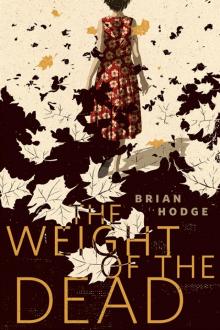 The Weight of the Dead
The Weight of the Dead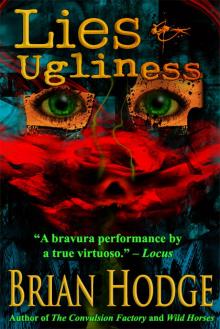 Lies & Ugliness
Lies & Ugliness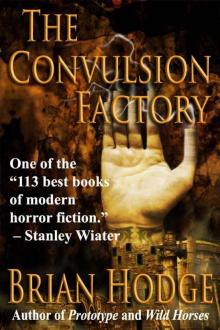 The Convulsion Factory
The Convulsion Factory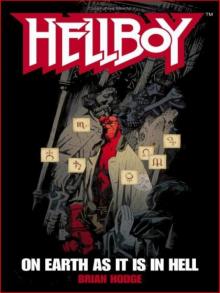 Hellboy: On Earth as It Is in Hell
Hellboy: On Earth as It Is in Hell Whom the Gods Would Destroy
Whom the Gods Would Destroy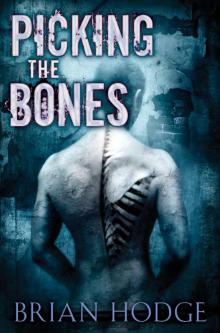 Picking the Bones
Picking the Bones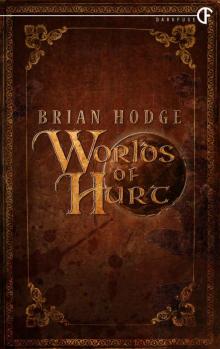 Worlds of Hurt
Worlds of Hurt Oasis
Oasis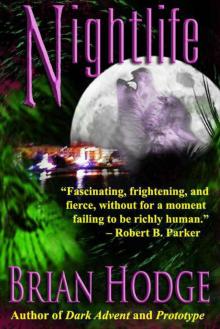 Nightlife
Nightlife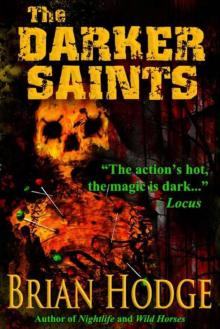 The Darker Saints
The Darker Saints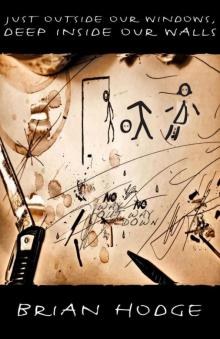 Just Outside Our Windows, Deep Inside Our Walls
Just Outside Our Windows, Deep Inside Our Walls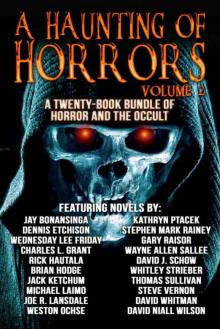 A Haunting of Horrors, Volume 2: A Twenty-Book eBook Bundle of Horror and the Occult
A Haunting of Horrors, Volume 2: A Twenty-Book eBook Bundle of Horror and the Occult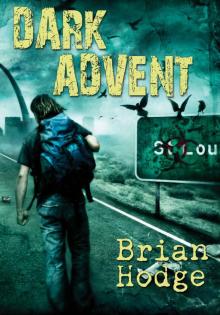 Dark Advent
Dark Advent Mad Dogs
Mad Dogs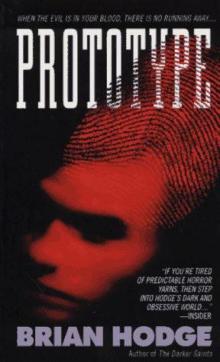 Prototype
Prototype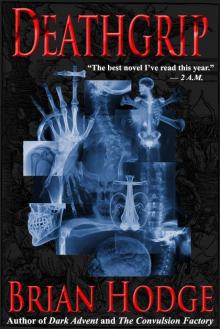 Deathgrip
Deathgrip Falling Idols
Falling Idols